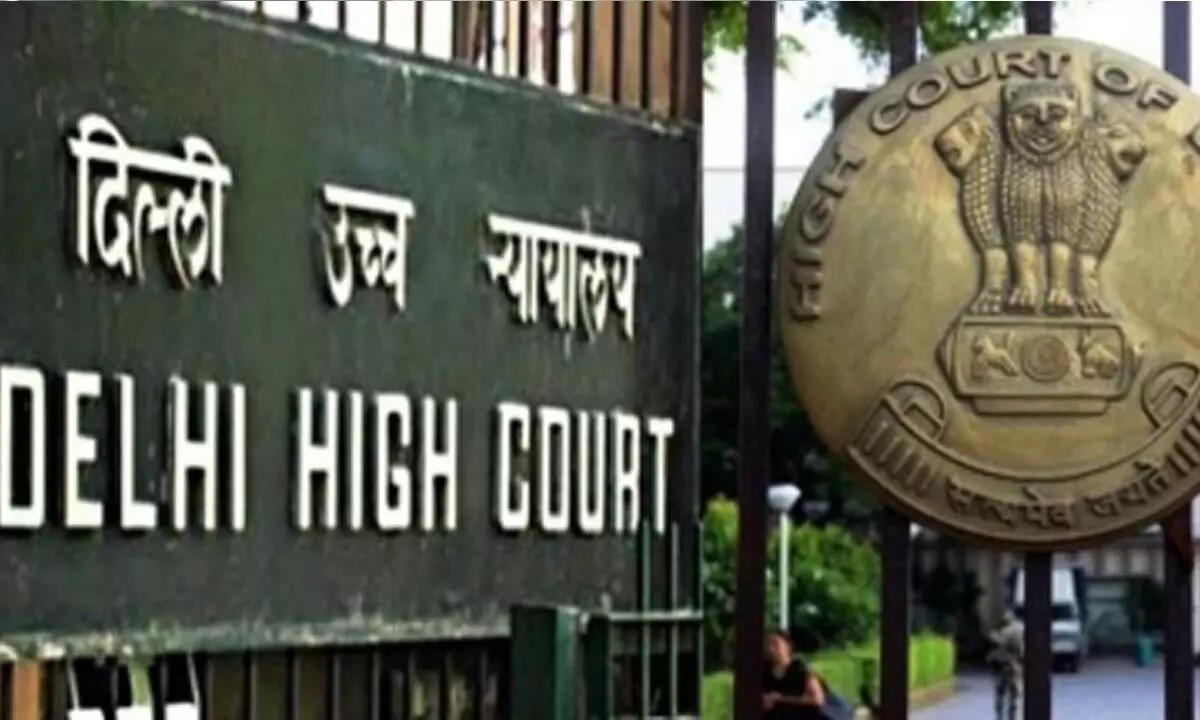Live
- Attacks on Hindus in B'desh: Why are Nobel laureates from Bengal not saying a word, asks Anirban Ganguly
- Civic chief inspects MSME survey
- MLA inaugurates development projects in Chittoor
- SBI offers collateral-free loans to empower farmer groups
- Dist police annual sports meet begins
- UN experts urge US to end 'double standards' on Israel-Palestine conflict
- Police recovers 220 lost mobiles
- Former Minister Avanti Srinivas Resigns from YSRCP, Citing Personal Reasons
- 3-judge Special Bench of SC to hear today pleas against Places of Worship Act
- MP CM to lay foundation stone for Rs 1,700 crore Sondwa irrigation project in Alirajpur
Just In
Delhi HC calls for policing reforms to tackle surging cyber crimes

The Delhi High Court on Tuesday stressed the need for a reformed policing system to meet new challenges as it heard a Public Interest Litigation (PIL) regarding the surge in cyber crimes
New Delhi: The Delhi High Court on Tuesday stressed the need for a reformed policing system to meet new challenges as it heard a Public Interest Litigation (PIL) regarding the surge in cyber crimes,
The division bench, comprising Acting Chief Justice Manmohan and Justice Manmeet Pritam Singh Arora, noted the importance of adopting a straightforward complaint filing system for such cases. The court was responding to concerns raised in the plea about the rise in cyber crimes, including the forging of court orders, fake FIRs, and arrest warrants. The petitioners argued that the websites of the Central and State Cyber Cells lacked activity and failed to raise awareness about the latest cyber crimes. The court noted the seriousness of the issue but said that the prayers in the petition differed from the oral submissions.
Referring to the proposed changes as "unworkable prayers," the court directed the petitioners' counsel to amend the petition for further consideration on January 30. The court said: “Cyber crime is a genuine problem today. Everyone is getting troubled. This is something unique happening now. We don’t know what the authorities can do about this. Only awareness can work. Awareness is needed.”
Addressing the Delhi Police's counsel, Santosh Kumar Tripathi, the court stressed the urgency of creating a simple digital facility for people to report cyber crime complaints via email. It pointed out the need for swift action, especially in cases involving monetary transactions that could cross international boundaries. Tripathi submitted that a centralised number 1089 is already there and people can lodge complaints on it. The bench, however, said the numbers are generally not functional and digital facilities should be made available. “Suppose someone succeeds in transmitting money. Money has to be blocked immediately. It cannot be done till you have a digital system in place. Otherwise, money will cross the boundaries of this country. You won’t be able to reach it,” the court said. “Even if the money is given through banks, it will go out of the country in 15 minutes. I think they (petitioners) are giving good suggestions. One is to create awareness and the other is to have a (simple) mechanism to lodge complaints,” the court said.
It called for the creation of special dedicated units to address the growing challenges posed by cyber crimes and stressed the importance of police officers being well-versed in computer technologies. Furthermore, the court asked the Central government's counsel to explore the possibility of establishing a unified system to verify the genuineness of the orders passed by the authorities.
The plea has been filed to bring to the notice of the court the issue of the rapidly multiplying and mutating menace of cyber crime which has now taken a perilous turn and emerged as a new kind of skullduggery, that is a ‘digital arrest’ scam, which poses a greater threat.

© 2024 Hyderabad Media House Limited/The Hans India. All rights reserved. Powered by hocalwire.com






